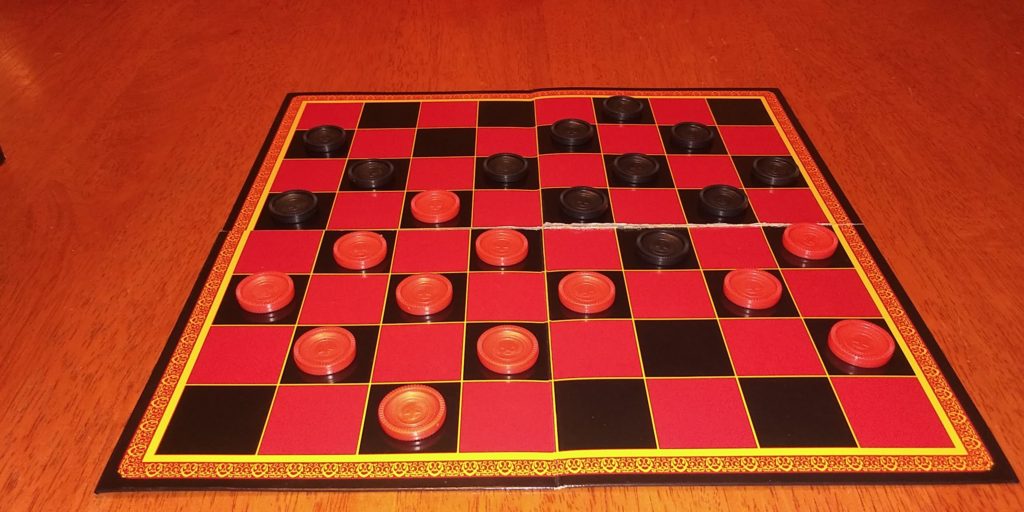The topic of the Ship of Theseus experiment came up in the last few days, from two sources independent of each other. Why not post about it?
My solution involves three different concepts of ships that exist simultaneously, which we will call Rose, Sina, and Maria.
Ship Rose is the concept of Theseus’s ship as a purely material entity. This ship stops being Theseus’s ship the immediate next moment, whenever that is, after the ship is declared as Theseus’ ship. It changes immediately because even a microscopic change in the ship’s physical body means the ship has, literally, changed into something different. A drop of tar floats off the hull, or thread unravels slightly from the mainsail, and it’s all different. This idea is relates to Heraclitus’ famous river but it isn’t very fungible when we talk of things that are “slow changing” in its practical usage, like a ship.
Ship Sina is the ship in the paradox’s museum that has been fully restored. This isn’t Theseus’ ship but a replica of it, however piecemeal that transition occurred; qualify it however you want.
Ship Maria is in pieces in the warehouse. To most people, assuming they know of the replica, know that this Ship Maria is the “real” Ship of Theseus, but dismantled. Suppose all the those old, replaced parts were put back together in the warehouse? That would be Theseus’ ship, but doubtless it’ll sink and revert back to pieces if some enterprising young shipmaster were to try to cast off.
There’s further complications to account for: suppose you brought Theseus forward in time and showed him the decrepit Ship Maria, then the brand new, hardier Ship Sina. Which would would he want to declare the new Ship of Theseus? What if people then called the ships by the names I gave them here in this post? The Ship of Theseus has a double meaning: as a proper noun, but also as a statement of possession: “the ship that Theseus owns.” Which one does the paradox posit? One or both of them?
Many proposed paradoxes simply highlight the imprecision and ambiguity of contextless language than the faultlines of logical reasoning. They are resolved simply by adding more context and running through the possible implications.
tl;dr – Ships Rose, Sina, Maria, could all be Theseus’ ship, depending on who you ask, and when you ask them, and the context in which the paradox is defined.
Edit: Similar to the Sorites paradox, we could also ask at what point in the restoration process of Ship Sina does it cease being the ship of Theseus? Here again the imprecision of language and logic is made known. It would be determined, in this context, by, say, the standards of museum replications or restorations, whatever those are. It could be percentage of replication, replacement of certain necessary components (the mast?), the sentiments of the museum going public. We can call this threshold, the “Schnoggleractor Threshold.” Note that using a word, particularly a proper noun, as a shorthand label for a lengthy explanation or set of criteria to be met, provides a much better answer. Before we came up with the Schnoggleractor Threshold, the only true answer to the paradox in any of its contexts, is tautological: the Ship of Theseus ceases to be the Ship of Theseus when it ceases to be the Ship of Theseus. Not very helpful, but by providing some change parameters and a linguistic stage gate, the answer is refined.

5 Comments
In yet another sense, the Ship of Theseus is whichever one he is on, and which he claims at that moment. Even if he knows about the three, he can’t board three at once.
Exactly, especially if his contemporaries think that way as well. Consensus is strong context.
I feel like I missed out on learning about this paradox in any of my philosophy classes … however, I remember discussing it with a friend a few years ago. I forget what I had said, but I never thought about it from a sociological or linguistic perspective.
Now that I think about it, I’m having trouble deciding what’s more important. Is the Ship of Theseus’ identity located in its relation to Theseus or its mere quality of being a ship?
I tend to think it’s more of the latter. And even if all the pieces were replaced, the term “replaced” denotes a particular location in which that replacing happened.
“Is the Ship of Theseus’ identity located in its relation to Theseus or its mere quality of being a ship?”
This is a bit of a crummy way to word it. I guess for me, I was thinking that the identity of Theseus’ ship might exist within the will of the owner. For example, if Theseus’ ship started off red but he wanted to paint it blue, it would still be the same ship because this alteration conforms to his will.
Maybe I was thinking outside the boundaries of the paradox though…
Well, the boundaries aren’t very defined, I don’t think. That’s why language and our consideration of language is crucial. The solution(s) hinge on how we think and communicate.